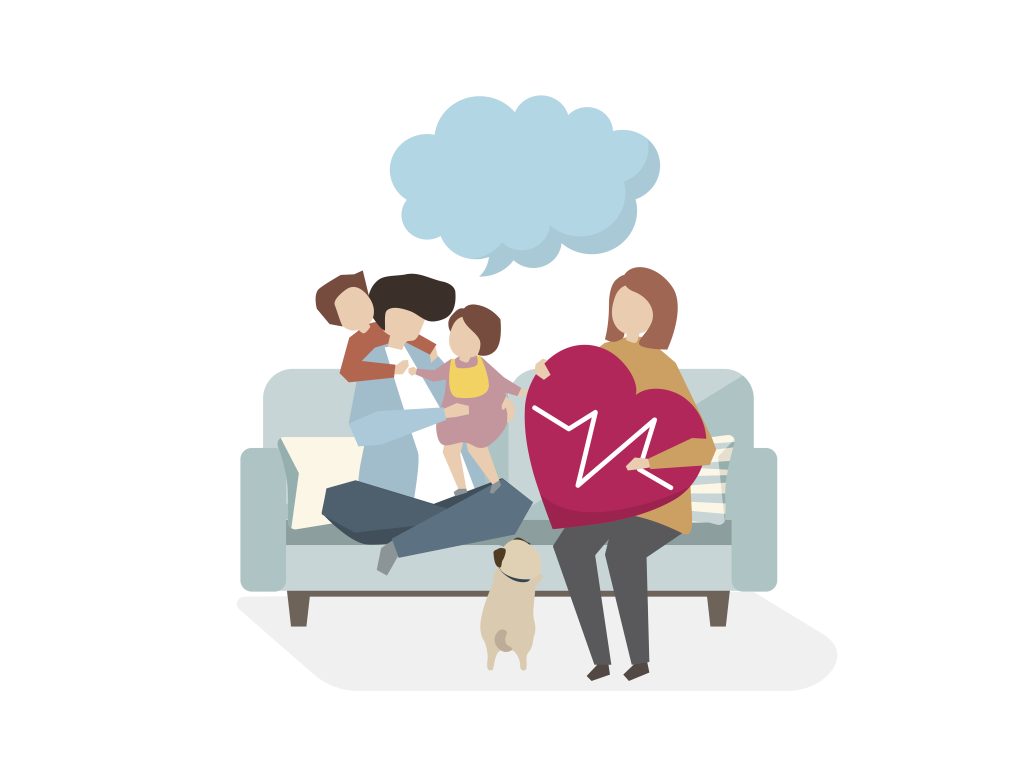Relationships are a complex and dynamic aspect of our lives, and understanding the distinct types of relationship dynamics can be crucial for our overall well-being and happiness. The line between co-dependency and interdependence can be fine, and it is important to understand the differences between these two concepts to cultivate healthy and fulfilling relationships with others. Whether it is with a romantic partner, a close friend, or a family member, relationships play a vital role in shaping our experiences and our sense of self. By exploring the difference between co-dependency and interdependence, we can gain a deeper understanding of what makes a relationship healthy and fulfilling, and how to create meaningful connections with others that are built on mutual respect, trust, and equality.
Co-dependency and interdependence are two concepts often used interchangeably in relationships. However, these two terms have distinct meanings and implications for the individuals involved in a relationship. Understanding the difference between co-dependency and interdependence can be important for recognizing healthy and unhealthy patterns in relationships and for developing more fulfilling and meaningful connections with others.
Co-dependency is a term used to describe a relationship dynamic in which one person is overly reliant on another person for their emotional and psychological well-being. This type of relationship is often characterized by an imbalanced power dynamic, with one person taking on a caretaker role and the other person assuming a passive or dependent role. This can lead to a cycle of codependent behavior in which the caretaker continually seeks to fulfill the emotional needs of the dependent person, while the dependent person continues to rely on the caretaker for support.
Co-dependency in relationships is often marked by poor boundaries and an inability to maintain individual identity. People in co-dependent relationships may have trouble setting boundaries and saying no to the demands of the other person, leading to feelings of resentment, burnout, and low self-esteem. They may also struggle to define and assert their own wants and needs, leading to a loss of individuality and a sense of being trapped in the relationship.
Interdependence, on the other hand, is a relationship dynamic in which both individuals can function independently but choose to be in a relationship because they value the connection and support it provides. Interdependent relationships are marked by mutual respect, trust, and a sense of equality between partners. Interdependence in relationships can help people maintain their individual identities and prioritize their own needs and wants, while also supporting and being interested in their partner’s needs and wants. This creates a sense of balance and fairness in the relationship, which can lead to greater happiness and fulfillment for both individuals.
One key difference between co-dependency and interdependence is the presence of healthy boundaries. In co-dependent relationships, boundaries are often blurred or non-existent, leading to feelings of entrapment and resentment. In interdependent relationships, boundaries are respected and maintained, allowing for greater independence and autonomy for both individuals. This can lead to a sense of security and trust in the relationship, as each person knows that the other will not infringe on their personal space or well-being.
Another key difference is the level of control and power in the relationship. In co-dependent relationships, one person may have a greater degree of control and power, while the other person is more passive or submissive. In interdependent relationships, power is more evenly distributed and both individuals have a say in decision-making and can express their opinions and wants without fear of rejection or judgment. This sense of equality and mutual respect can lead to greater trust and intimacy in the relationship.
It is important to note that relationships can change over time and that what may have started as an interdependent relationship can become co-dependent if one person begins to rely too heavily on the other for emotional and psychological support. On the other hand, a co-dependent relationship can become interdependent if both individuals are able to recognize the imbalanced power dynamic and work to establish healthier boundaries and a greater sense of equality.
To maintain a healthy and interdependent relationship, it is important to prioritize your own well-being and to communicate openly and honestly with your partner. This may mean setting boundaries and saying no to the other person’s demands, when necessary, and asserting your own wants and needs. It may also mean prioritizing your own goals and interests, while still being supportive of your partner’s goals and interests.
Catch Prerna and Mehul’s story, a young couple, and know more about relationships and how to navigate your way through them. All episodes are now streaming on Fully Faltoo YouTube Channel. If you or anyone you know is seeking help with abortion/contraception/family planning, call on 18001806789 today.




